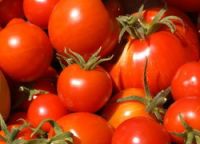TOKAR - Impact of production forms, regionalism and seasonality of the purchased ingredients on the CO2 emissions of canteen kitchens
Project goal
The goal of this project is to demonstrate the influence of agricultural production, origin and seasonality on the CO2-emissions of canteen kitchens at the examples of Austrian and Italian tomatoes, lettuce, carrots and onions, and thus to lay the foundations for supporting canteen kitchens on their way towards sustainable production.
Summary
Worldwide, 14 % of the anthropogenic greenhouse gas (GHG) emissions, 52 % of the anthropogenic methane emissions and 84 % of the nitrous oxide emissions are generated in the agricultural sector. Austria’s canteen kitchens produce about 1.5 million dishes per day. Can Austria’s canteen kitchens contribute to climate protection through the conscious selection of the ingredients?
The basis of this study is the master thesis with the German title “Einfluss der landwirtschaftlichen Produktionsform, Regionalität und Saisonalität der eingekauften Gemüsearten auf die CO2-Emissionen von Großküchen - CO2-Bilanzierung von Tomaten, Kopfsalaten, Karotten und Zwiebeln“ written by the author at the University of Natural Resources and Applied Life Sciences in Vienna.
The examination of the four groups of vegetables shows that the purchase of organic, seasonal and regional food allows to some extent significant emission reductions.
Organic tomatoes, lettuce, carrots and onions prove a smaller backpack of greenhouse gas emissions than conventional ones. Organic tomatoes allow for saving of 98 % of the greenhouse gas emissions in comparison to the conventional cultivation. Regarding onions and carrots, the reductions amount 22, respectively, 24 %. Regarding Austrian and Italian field-grown lettuce, the differences between the two production systems are between 2 and 8 %. The possibility for saving GHG-emissions in the organic farming is explained by the lower emissions from the manure. Despite the more intensive machine employment, the GHG-emissions are lower compared to conventional agriculture.
Regarding tomatoes, lettuce, carrots and onions imported from Italy, the transportation is responsible for a significant discharge of GHG. The GHG-emissions of Austrian lettuce and carrots are approximately 80 % lower than of Italian ones. Regarding onions, the savings amount to about 70 %. Italian organic tomatoes are responsible for less GHG-emissions than conventional tomatoes from regional, heated greenhouses.
If Austrian carrots and onions are purchased off-season, the GHG-emissions are at least 40 % lower than the GHG-emissions of Italian ones. Regarding tomatoes and lettuce, the emissions caused by storing the vegetables in a cold storage room are insignificant. In case of organic carrots, the GHG-emissions increase up to about 210 % until the end of the storage season, and for organic onions - up to about 240 %.
In case of purchasing lettuce and tomatoes off-season, organic Italian tomatoes and lettuce induce the lowest GHG-emissions. Conventional tomatoes from Austria are mostly planted in heated greenhouses and induce more GHG-emissions than Italian organic tomatoes from polytunnels.
An example shows that by purchasing about 12.800 kg tomatoes per year and thereof 15 % organic tomatoes, the increase of the proportion of organic tomatoes can save about 8.500 kg CO2 eq/year.
The results show the influence of the production system, the origin and the seasonality on the GHG-emissions and therefore the importance of these factors to canteen kitchens. The dimension of the influence depends on the particular vegetable.


